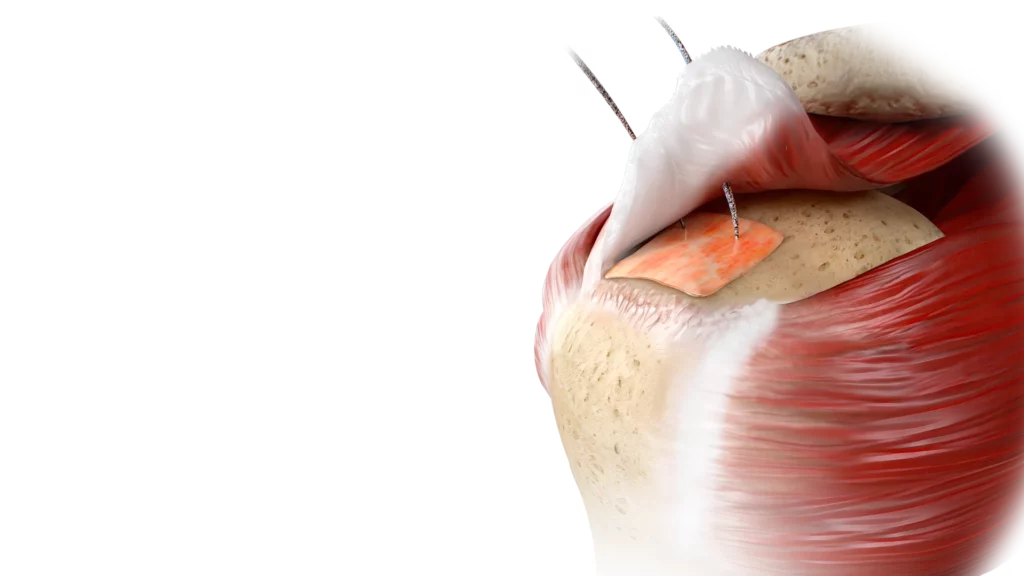
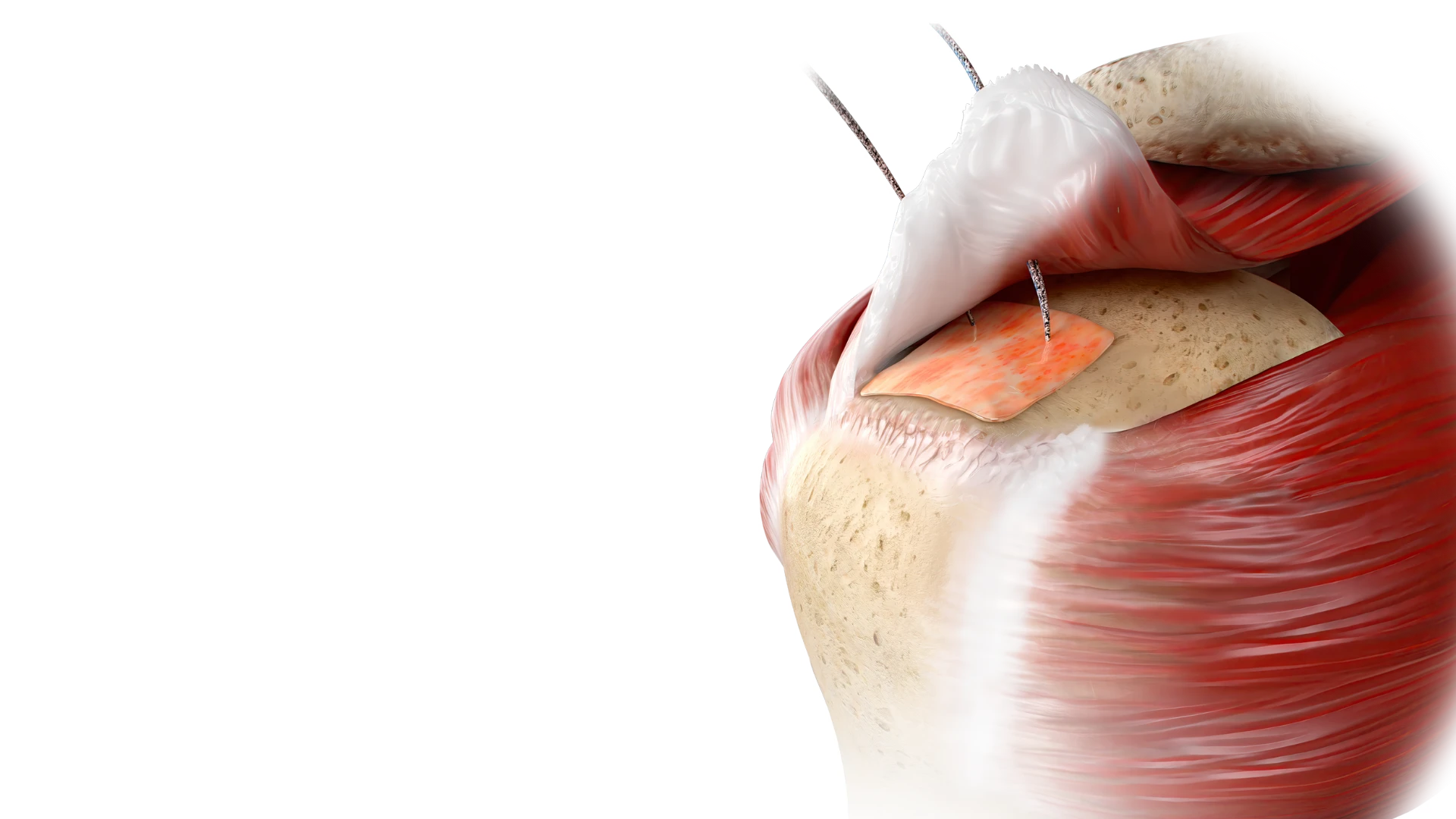

ADVANCING ROTATOR CUFF HEALING AT THE ENTHESIS
ROTIUM® is an interpositional wick placed at the tendon-bone interface designed to supercharge the biologic environment for support of the healing cascade and improvement in long-term outcomes after rotator cuff repair.
The biologic healing challenge
- Retear rates remain high—averaging over 35% across published studies
- The focus has been on mechanical fixation, overlooking the biologic gap at the enthesis
- Healing often occurs through scar tissue formation, compromising long-term durability
The rotium advantage
ROTIUM targets the biologic gap at the enthesis—delivering the patient’s own healing factors where they’re needed most. Its placement between tendon and bone promotes scarless healing, strong integration, and restoration of a functional repair.
efficiency meets biology
Rotium scaffold implant
Designed for efficiency, ROTIUM integrates seamlessly into standard rotator cuff repair techniques without adding surgical time.
The bioresorbable scaffold delivers targeted biologic support directly at the repair site to enhance the healing environment and promote native tissue regeneration.
ROTIUM Bioresorbable Wick Animation
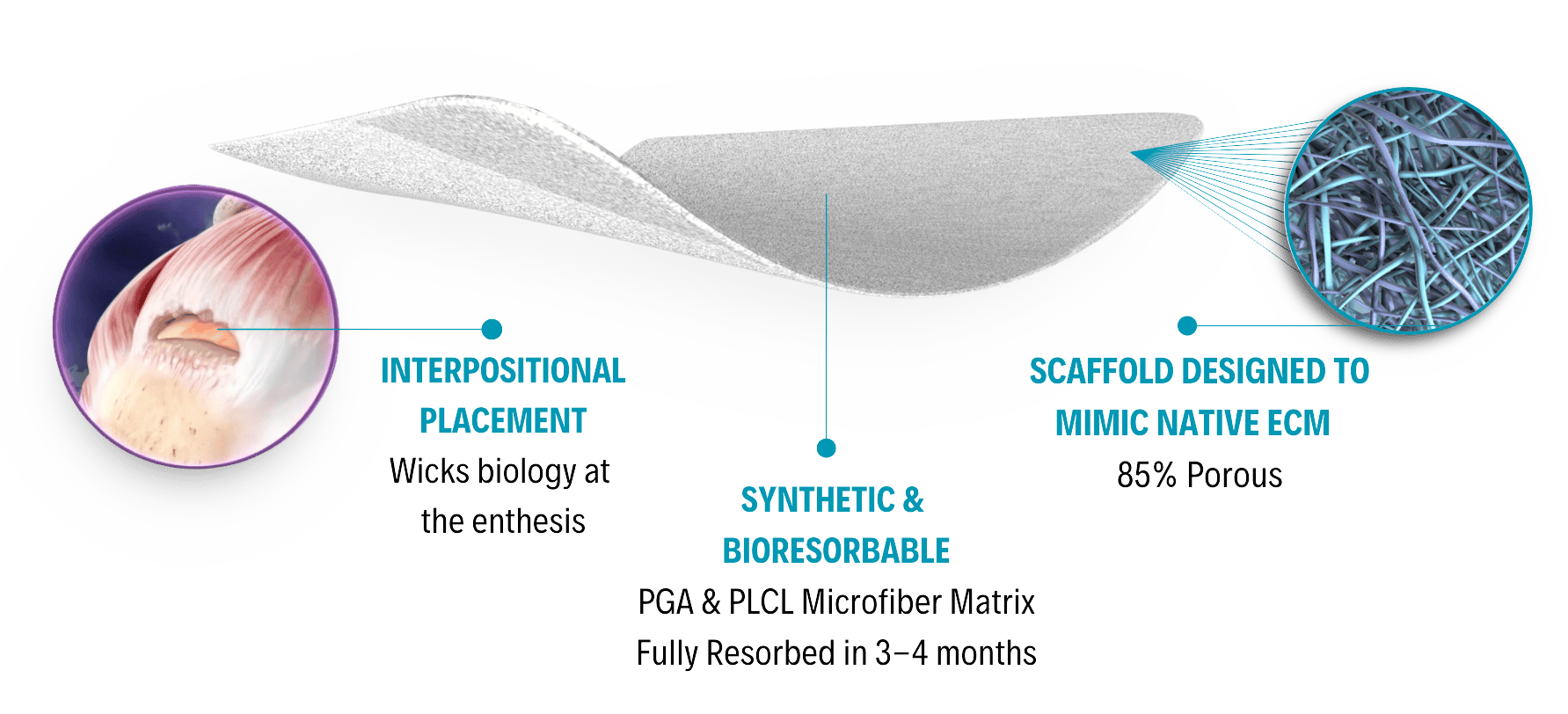
Unique Design Features
- An Inlay Scaffold Augmentation
- 100% Synthetic
- PGA – Poly-Glycolic Acid
- PLCL – Poly-Lactide co-caprolactone
- Optimal Sizes for Footprint Coverage
- 20×20 mm
- 40×30 mm
VERSATILE & SIMPLIFIED TECHNIQUE
Step 1
Pass suture through scaffold.
Step 2
Taco & push through cannula.
Step 3
Position on the repair footprint.
Step 4
Complete repair with cuff over ROTIUM®.
- Applicable with any Rotator Cuff Repair technique
- No disposables
- No special instrumentation required
Advantages for the Ambulatory Surgery Centers (ASC) & Hospitals
- Cost-Effectiveness – Affordable without compromising quality, appealing to price-sensitive markets
- Efficient Technique – Incorporated into current RTC surgeries without the need for extra disposables, staples or instrumentation
- Robust Synthetic Structure – For ease of handling during implantation and no special storage requirements
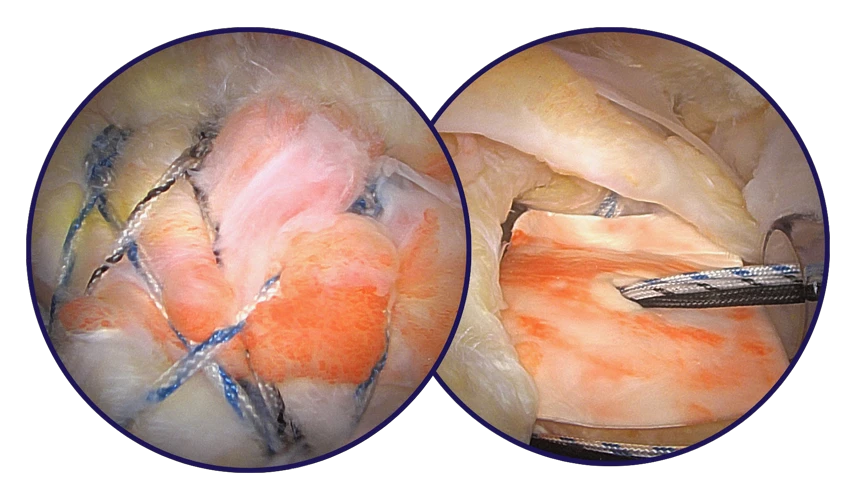
Arthroscopic images courtesy of Dr. Jacob Kirsch
Clinical Success & Proven Science
Backed by 16 years of research, Atreon’s technology delivers science-driven solutions that support healing, enhance repair, and elevate surgical outcomes.
Patient Outcomes Study Findings: Patients who received the ROTIUM scaffold had a significantly lower cumulative treatment failure rate (7.1%) compared to those who did not receive the scaffold (50%) over an average follow-up of 17 months.
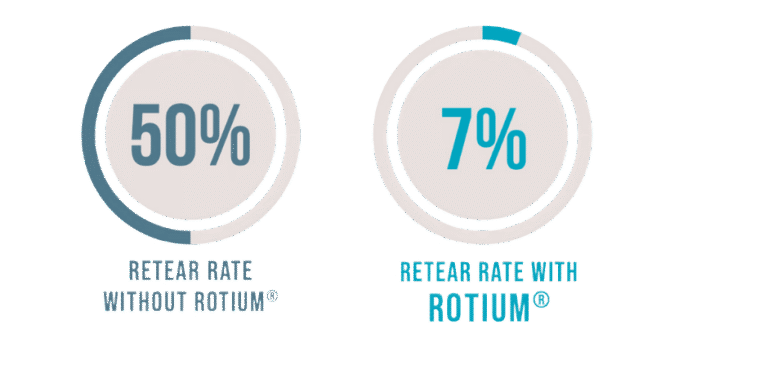
Add JOEI study reference
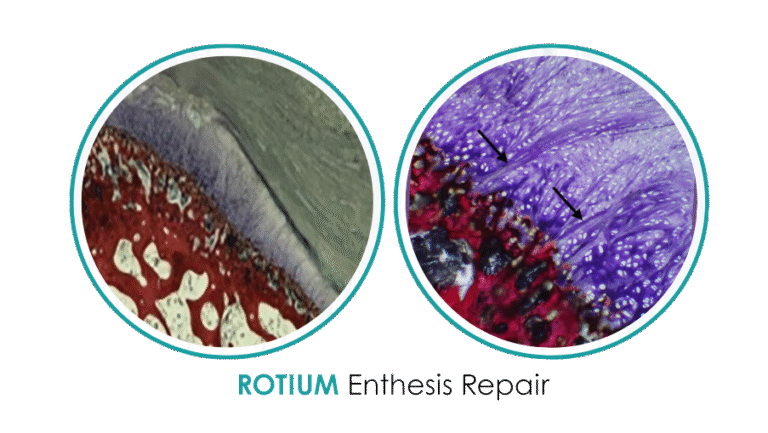
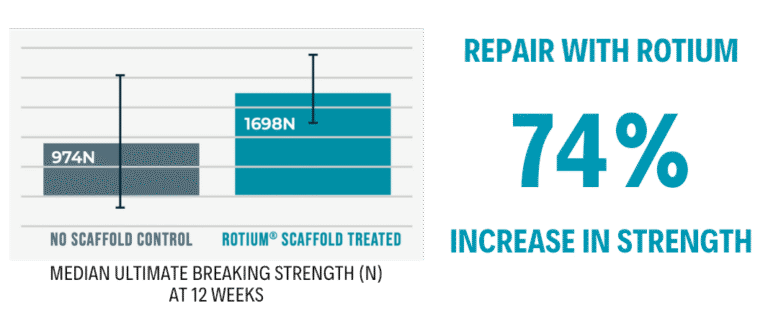
Animal Study Findings: Results showed that ROTIUM scaffold-augmented repairs exhibited increased failure strength and bone-tendon integration with the development of Sharpey-like fibers at the tendon-bone interface, suggesting improved healing.
J Shoulder Elbow Surg. 2022;31(2):402–412. doi:10.1016/j.jse.2021.09.017.
